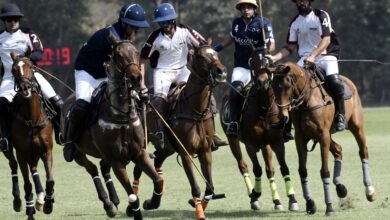Performance Disparity and Accountability Concerns Surface at the National Games in Quetta

Performance Disparity and Accountability Concerns Surface at the National Games in Quetta
By Musarrat Ullah Jan
The recently concluded National Games in Quetta saw Khyber Pakhtunkhwa emerge as the top-performing province, leaving other provinces behind. However, while Khyber Pakhtunkhwa’s performance may have been comparatively better, it cannot be regarded as a significant improvement or record-setting achievement. This raises questions about the allocation of funds, recruitment of coaches by the provincial sports directorate, and the number of competitions conducted.
Unfortunately, obtaining a comprehensive account of the funds spent by the previous government’s provincial sports directorate on the Ministry of Sports has proven to be a challenge. Bureaucratic hurdles and conflicting policies have hindered transparency and accountability within the department. District Sports Officers (DSOs) working under the Provincial Sports Directorate have expressed frustration, particularly concerning their performance over the last three years. The silence surrounding the number of sports programs organized, participation rates, and financial expenditures in most districts is alarming.
The lack of answers has become more evident in recent events. Requests made under the Right to Information Act regarding the competitions scheduled for 2022 from the District Sports Officers of Peshawar have gone unanswered for two months. Moreover, a false accusation has been made against writer , an individual seeking information, resulting in the filing of a defamation case. These incidents highlight the need for accountability and transparency in the sports directorate.
Following the National Games in Quetta, the Khyber Pakhtunkhwa Olympic Association has questioned the directorate’s handling of funds, suggesting that better performance could have been achieved if managed by the Olympic Association instead. They also criticized the silence of the provincial sports directorate regarding inter-district competitions before the National Games, stating that these events could have facilitated the emergence of new talented athletes. While the Olympic Association’s concerns hold some merit, they should also address the poor performance of their affiliated associations.
Several associations have faced criticism for their lackluster performance, leading to allegations of favoritism and nepotism. Questions have also been raised regarding the utilization of a substantial sum of 3.8 million rupees. These funds, approved by the former DG Sports Khalid Khan, surpass the actual requirements of the National Games. It remains unclear whether these funds will be audited or continue to be expended without proper oversight.
The Provincial Sports Directorate of Khyber Pakhtunkhwa should reflect upon their own responsibilities. The forthcoming sports policy needs to prioritize the promotion of sports at the grassroots level and evaluate their efforts in developing athletes across various disciplines. Coaches, both regular and daily wage earners, have expressed concerns about the department’s lack of players at their disposal. If athletes suddenly shifted to other departments prior to the National Games, it raises questions about the effectiveness of the directorate’s talent retention strategies. Furthermore, issues have arisen regarding wasteful spending on inter-university games and equipment, which fall outside the purview of the sports directorate. These misguided endeavors only serve to please certain factions and waste taxpayers’ money.
Amidst these concerns, the plight of daily wage workers, such as security personnel earning meager salaries, should not be overlooked. Their unpaid wages for three months demonstrate a severe lack of accountability within the system. The overall performance of the sports directorate raises important questions, necessitating critical thinking from the taxpayers who finance government employees’ salaries.
The aftermath of the National Games in Quetta has shed light on the disparity in performance between provinces, as well as the need for greater transparency, accountability, and strategic planning within the sports directorate. Addressing these concerns is crucial to promote sports development, nurture talent, and ensure efficient utilization of public funds.




